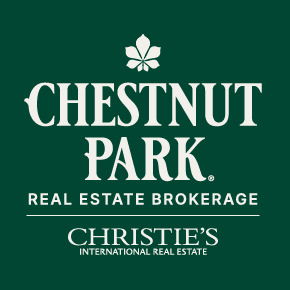If you’re considering the possibility of buying an investment property in Toronto, it’s important that you understand how to calculate cash flow of an investment property. As a landlord, you ideally want to have positive cash flow and not be breaking even each month, or even worse, your property being vacant or your tenant being behind on their payments (this is called negative cash flow).
What Is Cash Flow
Cash flow is the net amount of cash that flows in and out of a business during a given period of time. It is important to monitor cash flow when investing in property, as it can give you an idea of how well the property is performing and whether or not it is a good investment. For example, if a property is generating positive cash flow, this means that it is bringing in more money than it is spending. This can be a good indicator that the property is doing well and is a wise investment. On the other hand, if a property is generating negative cash flow, this means that it is costing more money than it is making. This can be a red flag that the property might not be a good investment. By keeping an eye on cash flow, you can make sure that your property investments are sound and are likely to generate good returns.
How To Calculate Cash Flow Of An Investment Property
To calculate the cash flow, you will need to know the property’s gross income, operating expenses, and mortgage payments. The gross income is the total amount of rent that is collected from tenants. Operating expenses include things like repairs, insurance, and taxes. Mortgage payments are the monthly payments that are made towards the loan used to purchase the property. Once you have all of this information, you can calculate the cash flow by subtracting the operating expenses and mortgage payments from the gross income.
Factors That Can Affect The Cash Flow Of An Investment Property
There are a number of factors that can affect the cash flow of an investment property. The most obvious is the amount of rent that is collected each month. However, there are also other factors to consider, such as the costs of maintenance and repairs, property taxes, and insurance. In addition, the cash flow can be affected by the vacancy rate, if the property is vacant for long periods of time, it can be difficult to make a profit. Finally, the location of the property is also important. A property in a desirable area is more likely to have higher rents and be easier to fill than a property in a less desirable area. By taking all of these factors into account, investors can maximize their chances of generating positive cash flow from their investment properties.
Ways To Increase Cash Flow
For any investor, cash flow is essential to the success of their investment property. Here are a few tips to help improve the cash flow of an investment property:
1. Review expenses and identify areas where cost savings can be made. This could include anything from renegotiating contracts with ongoing service providers such as lawn maintenance or snow removal companies to implementing energy-saving measures such as changing light bulbs to LED bulbs, improving the insulation and replacing old windows and doors to reduce heating and cooling costs.
2. Increase rental income by making improvements that will appeal to excellent tenants or by making improvements that will allow you to increase the rent to current market rates (if you aren’t already hitting that target) or potentially even higher.
3. Make use of tax breaks and incentives that are available to investment property owners, such as depreciation allowances.
4. Keep a close eye on vacancy rates and make sure that the property is marketed effectively to minimize periods of vacancy. Use high end photos that showcase your property in its best light possible.
By following these tips, investors can help to ensure that their investment property generates a healthy cash flow.
You can use the following online rental property calculator HERE to get a sense of what your numbers would be.
Hopefully the above information has been helpful and has answered any questions you may have had relating to what cash flow is and how to calculate it.
Are you thinking about purchasing an investment property or are you considering selling or leasing out your investment property? Contact me with any questions you may have or to discuss how I can help you achieve your specific real estate objectives.



